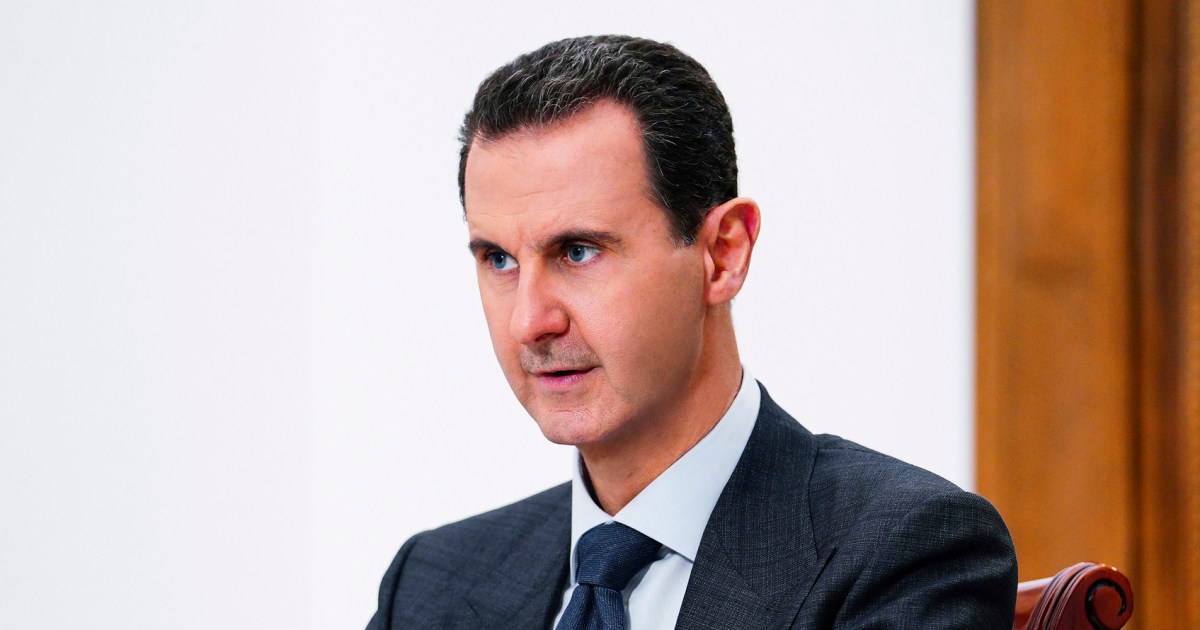Arab government representatives in Cairo voted on Sunday to return Syria to the Arab League after a 12-year suspension, according to the organization.
The vote in the Egyptian capital came days after top regional diplomats met in Jordan to discuss a road map to return Syria to the Arab fold as the conflict continues to wind down, and shortly before Saudi Arabia hosts of the next Arab League Summit on May 19.
Syria’s membership in the Arab League was suspended 12 years ago at the start of the uprising-turned-conflict, which has killed nearly half a million people since March 2011 and displaced half of the country’s pre-war population. 23 million.
All 13 of the 22 member states that attended the session supported the decision. The Arab League generally tries to reach agreements by consensus but sometimes opts for simple majorities.
There is still no Arab consensus on normalization with Damascus. Several governments did not attend the meeting. Among the most notable absentees was Qatar, which continues to back opposition groups against the government of Syrian President Bashar Assad, and continues to resist normalization with Damascus.
The decision for Syria to return also includes a commitment to continued dialogue with Arab governments to gradually reach a political solution to the conflict, in line with United Nations Security Council Resolution 2254. The Arab League in the decision also established a communications committee made up of Saudi Arabia and neighboring Syria, Lebanon, Jordan and Iraq to monitor developments.
In addition to commitments to a gradual resolution of the conflict, the decision also welcomed the Syrian government’s willingness to cooperate with Arab countries to resolve the «humanitarian, political and security» crises that affected Syria and the region due to the conflict, know, refugees, «the threat of terrorism and drug trafficking.»
Many anticipated the imminent return of Syria to the organization. The Arab rapprochement with Damascus accelerated after a deadly earthquake on February 6 that tore apart parts of the war-torn country, most notably Saudi Arabia, which once backed opposition groups trying to topple Assad.
Ahead of the meeting, Egyptian Foreign Minister Samer Shoukry said that only an Arab-led «political solution without foreign dictates» can end the ongoing conflict, restore Syria’s unity and stability, and allow the return of refugees and internally displaced persons.
«The different stages of the Syrian crisis have shown that there is no military solution, and that there are no winners or losers in this conflict,» he added.
As Assad regained control of most of the country with the help of key allies such as Russia and Iran in recent years, some of Syria’s neighbors that hosted large refugee populations took steps to restore diplomatic ties with Damascus. Meanwhile, the Gulf monarchies of the United Arab Emirates and Bahrain restored ties.
The February 6 earthquake that struck Turkey and Syria was a catalyst for further normalization across the Arab world, including regional rivals Saudi Arabia and Iran reestablishing ties in Beijing, which had backed opposing sides in the conflict.
Jordan last week hosted regional talks that included envoys from Saudi Arabia, Iraq, Egypt and Syria. They agreed to a framework, dubbed the «Jordan initiative,» that would slowly bring Damascus back into the Arab fold. Amman’s top diplomat said the meeting was the «beginning of an Arab-led political path» for a solution to the crisis.
The conflict in Sudan is also on the agenda as Arab governments try to stabilize a shaky ceasefire in ongoing fighting that has killed hundreds of people in recent weeks.


